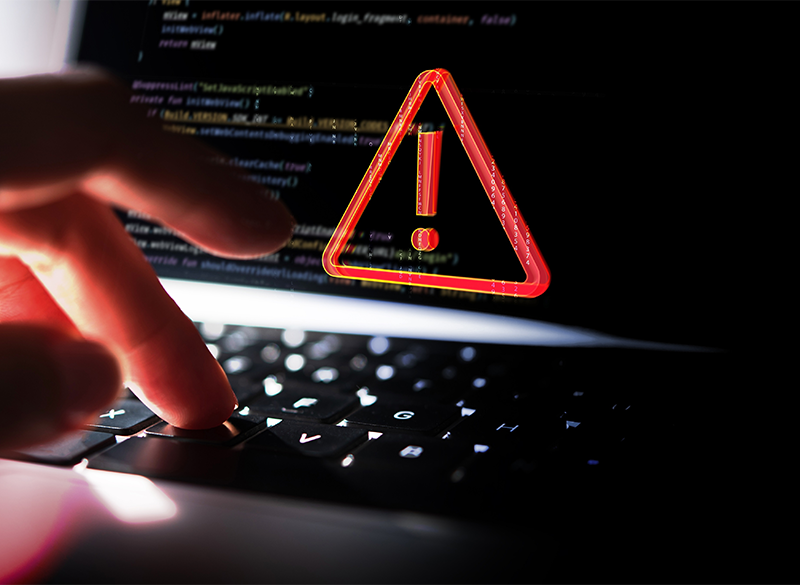The Digital World Belongs to Reality – Don't Neglect Your Security

Assist. Prof. Dr. Onur Demir, a Computer Engineer and faculty member at Yeditepe University's Faculty of Engineering, underlines the importance of being cautious in the digital realm, noting that we often neglect security by considering the real world and the digital world as separate. "According to Statista, 17 million cybercrimes were committed globally in 2023. In Türkiye, phishing attacks are the most prevalent, with social media use intensifying the risk. Don't overlook your computer security," he warns.
Assist. Prof. Dr. Demir shared insights on "Computer Security Day," observed annually on November 30 to raise awareness and encourage preventative measures in computer security.
"There Is Only One Life"
Assist. Prof. Dr. Demir points out the dangers of viewing the digital world as separate from the real world:
"We often neglect caution because we think the digital world is distinct from reality. In truth, the same principles apply to both. The real and digital worlds are parts of the same reality. If you wouldn't follow a stranger inviting you into their home for pizza, you shouldn't click on unfamiliar links or visit unverified websites. Just as we protect our personal belongings and information in daily life, we must do the same when using computers."
17 Million Cybercrimes in 2023
Highlighting the importance of awareness to mitigate risks, Assist. Prof. Dr. Demir says:
"Everyone is at risk, but those less familiar with technology and heavy social media users face greater threats. Social media makes accessing personal information easier. According to Statista, 17 million cybercrimes were committed globally in 2023."
Türkiye Faces Increased "Phishing" Threats
Discussing the rise in phishing attacks in Türkiye, Assist. Prof. Dr. Demir explains:
"Phishing is a cybercrime where attackers use fake websites, SMS messages, and emails to steal sensitive information such as passwords and credit card details. With 57 million active social media users spending an average of 2 hours and 44 minutes daily, Turkey is particularly vulnerable. In 2016, it was reported that personal information for nearly 50 million citizens was leaked. The phishing SMS messages we receive daily are clear indicators of this."
First Step: Strong Passwords
Assist. Prof. Dr. Onur Demir underlined that while the primary responsibility for ensuring computer security lies with the individuals and organizations developing or managing these systems, users also bear certain responsibilities. He outlined the following individual measures to enhance computer security:
- Use Strong Passwords: Ensure that your passwords are not derived from dictionary words or easily predictable traits. Avoid sequential passwords; for instance, if your current password is "abcd1," do not change it to "abcd2." If your password is ever compromised, such patterns could offer clues to future passwords..
- Enable Multi-Factor Authentication (MFA): Always use MFA for applications like e-government services, cryptocurrency platforms, banking, or insurance. MFA adds an additional layer of security beyond passwords, often involving SMS codes or apps like Google Authenticator.
- Regular Backups: Regularly backing up your data minimizes the impact of data loss. If your data is not encrypted, it may be easily accessed or read if the storage device is compromised. Frequent travelers, in particular, should use tools like BitLocker to keep their data encrypted. Similarly, ensure your mobile phone data is encrypted using the Android or iOS. Always enable screen locks on your phone.
- Be cautious with cloud storage: .Do not fully rely on cloud services without precautions. There have been numerous cases of cloud-stored data being compromised. Store critical files in encrypted formats and avoid relying solely on automatic backup systems. Instead, configure your backup settings carefully. Consider using a local backup method, such as an external hard drive, for highly sensitive files.
- Keep Software Up to Date: Regularly update your computer and mobile phone software, activate firewalls and use antivirus softwares.
- Download Software from Trusted Sources: Only download applications from verified sources and limit their permissions to the minimum necessary.
- Secure Public Wi-Fi Usage: Public Wi-Fi networks are often insecure. If you must use them, enhance your security by using applications like VPNs.
- Limit Personal Information on Social Media: Avoid sharing personal information in posts that could expose your sensitive data.